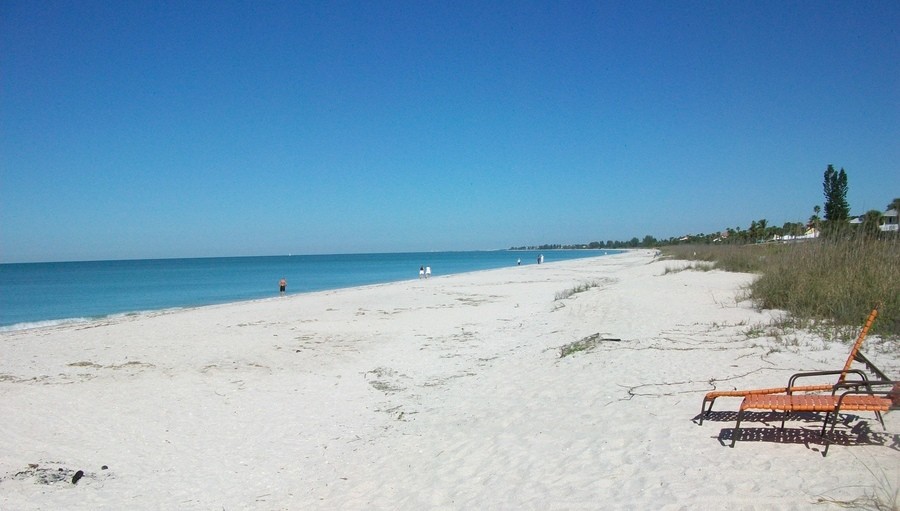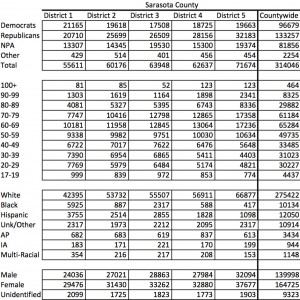The Long Project
Guest Correspondence
SRQ DAILY
SATURDAY NOV 12, 2016 |
BY DONAL O'SHEA
Governor Scott last May hosted a two-day summit entitled “Jobs to Degrees.” To my mind, the most fascinating presentation was made by the Gallup organization. Their CEO and COO presented the findings of a massive study of 30,000 college graduates done by Gallup and Purdue. The study sought to determine which college experiences correlated with “great jobs” (defined as successful and engaging careers) and “great lives” (defined as thriving in overall well-being) after college.
The study identified six features of the college experience that most closely correlated with great lives and great jobs after college (see www.gallup.com/poll/168848/life-college-matters-life-college.aspx). They were:
1) I had at least one professor that made me excited about learning
2) My professors cared about me as a person
3) I had a mentor that encouraged me to pursue my dreams and goals
4) I worked on a project that took a semester or more to complete
5) I had an internship or job that allowed me to apply what I was learning in the classroom
6) I was extremely active in extracurricular activities and organizations.
Experiencing even one of these six vastly increased the likelihood that a graduate would perceive himself or herself as having benefited from college. Unhappily, many college students experience none of these. I was gratified, of course, to realize that you can’t get out of New College without experiencing five of those six (and we are working on the sixth).
But what really intrigued and surprised me was the fourth. Since the college’s founding, a New College student must complete a project or thesis that takes up most of their senior year, and often part of their junior year.
There is no question that it is a valuable experience. I’ve been struck by how quickly one graduate will ask another, even over a span of three decades or more, what his or her thesis was on. But why should working on a project that takes more than a semester be so powerful? It’s not obvious.
Some reasons come to mind, of course. We humans love coherence, and a project that requires a semester or more to complete is likely to be integrative and require that the student put together very different things. Lengthy projects can be more complex, and often require sense-making, which can be very rewarding. Such projects would also teach limits. No sufficiently complex project ever ends, and you have to figure out where to stop. In so doing, you realize that experience and knowledge have human limits—time and effort are not inexhaustible resources. A long project is also likely to require reliance on others, and while there is something humbling about knowing that you can’t go it alone, there is also something soothing about it.
Perhaps the simplest reason that long projects are so valuable is that they allow students to experience the truth that undertakings that matter require time and sustained effort. Like relationships with spouses, friends, and children, substantive projects take more than a semester to build; they require patience and work. They are far more important than the bite-size assignments that comprise so much of formal education.
There are other views. Faculty members often debate the time investment, both by the student and the supervising faculty member that a thesis requires. It is time that could be used for other worthy things. A student could take another course or two. The faculty member could devote more time to introductory courses. Some students, paralyzed by their perception of complexity, take an extra year to finish, or don’t finish at all. It is surely better to graduate without a thesis, than not to graduate with a half-completed thesis. (Fortunately, that is uncommon, and becoming even less so. New College is strengthening its advising system, and as we add faculty, we will add depth and breadth and build more opportunities for mentoring.)
In the end, we really don’t know why a project that requires a semester or more to complete is so valuable.
One of the maddening, and exhilarating, things about education is how little we know about why some practices work and others do not. But we do know that students learn from them, become more capable, and create fond memories. That may be all we need to know.
Donal O'Shea is president of New College of Florida.
« View The Saturday Nov 12, 2016 SRQ Daily Edition
« Back To SRQ Daily Archive










